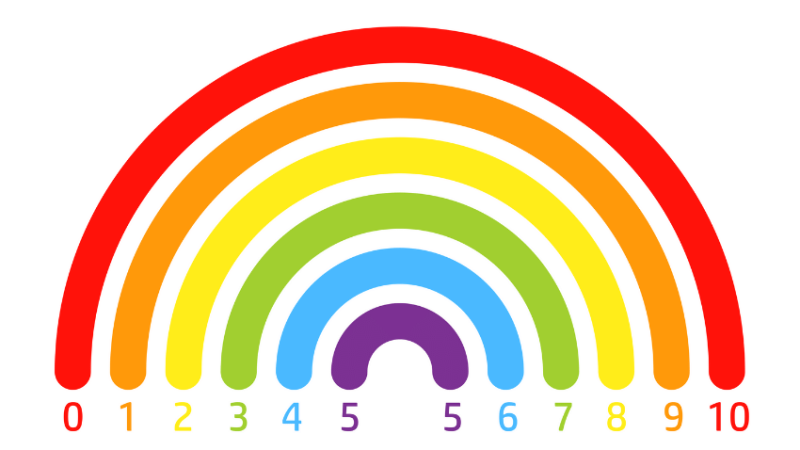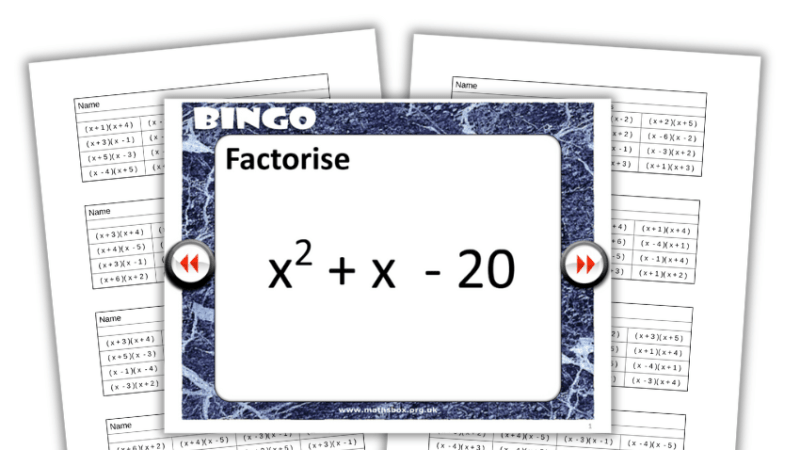Best Fractions Worksheets and Resources for KS2 Maths
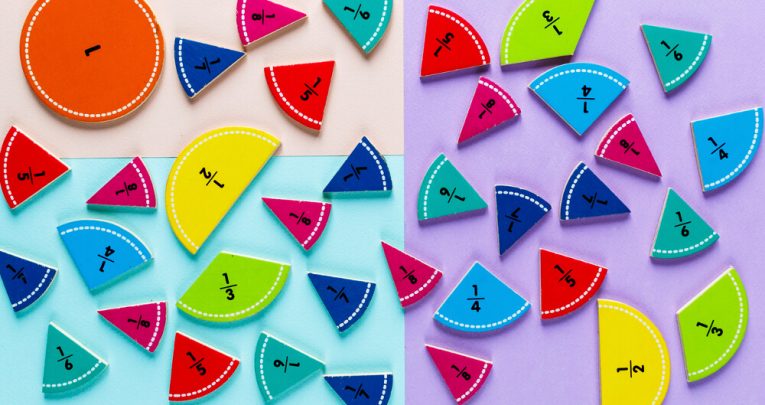
Whether it's fractions of amounts, adding and subtracting fractions or finding equivalent fractions, these worksheets, activities and lessons will help your primary maths students get to grips with this area of the curriculum…

- by Teachwire
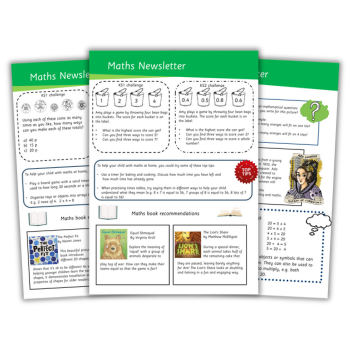
Fractions worksheets
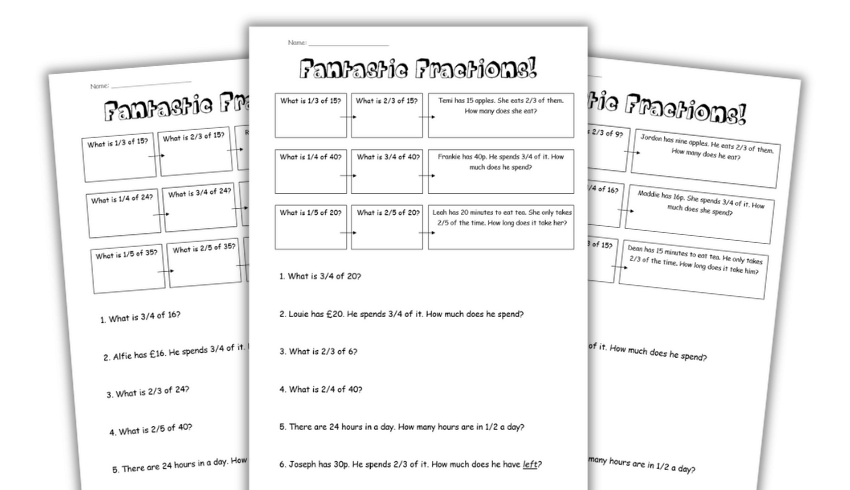
If your Year 3 or Year 4 class are struggling with finding fractions where the numerator is higher than 1 (eg 2/3 of 15), try these step-by-step differentiated fractions worksheets by teacher Sophie Bartlett.
Teach fractions like a pirate

Author: Ian Goldsworthy
Ahoy there, matey! Raise the Jolly Roger and I will show you how a bit of buccaneer vernacular can give your pupils’ learning the old heave ho.
Why would a teacher want to talk like a pirate? Shiver me timbers – why would any sane educator not want to do that? But will it help my class learn? (You could even tie it in for International Talk Like a Pirate Day in September).
Students will learn how to measure volume in millilitres, how fractions of different denominators can add up to a whole, combining liquids in the correct ratio and that scurvy can result from a lack of fresh fruit.
Download this complete lesson plan here.
Fractions of shapes and amount
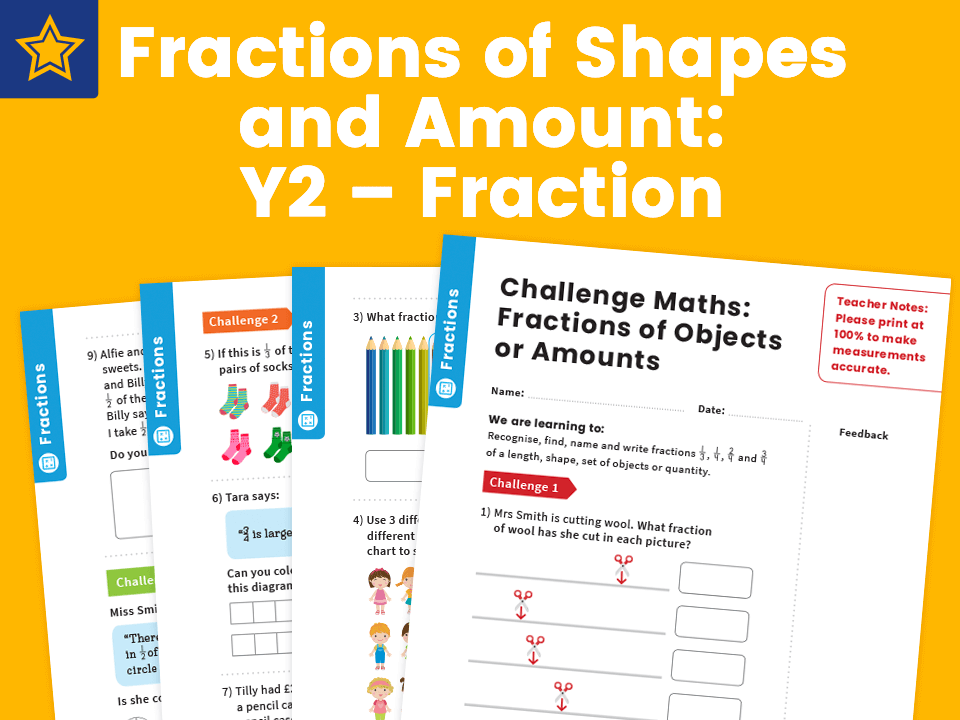
Author: Plazoom
Designed for Year 2, these fractions of shapes and amounts worksheets offer a variety of problems helping children to recognise, find, name and write fractions ⅓, ¼, 2/4 and ¾ of a length, shape, set of objects or quantity.
Answer sheets are included too.
Finding fractions of amounts

Author: Plazoom
You can then take things further with this Year 3 resource designed to let children recognise, find and write fractions of a discrete set of objects.
Fractions of an amount treasure hunt
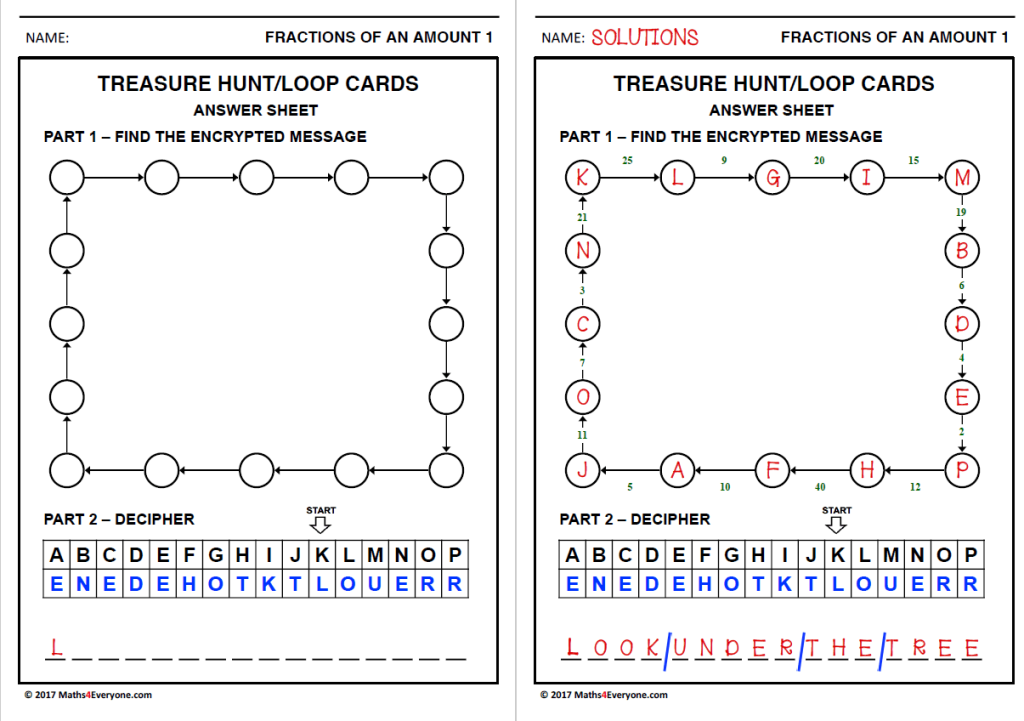
Author: David Morse
This activity requires students to calculate a fraction of an amount, where the numerator is always ‘1’, to find and decipher an encrypted clue to reveal where the treasure is hidden!
These question cards have been prepared in two sizes. The large cards can be pinned around around the classroom and used for a whole-class activity; the smaller (loop cards) can be used for group work or by individuals.
Fractions of amounts QR code scavenger hunt
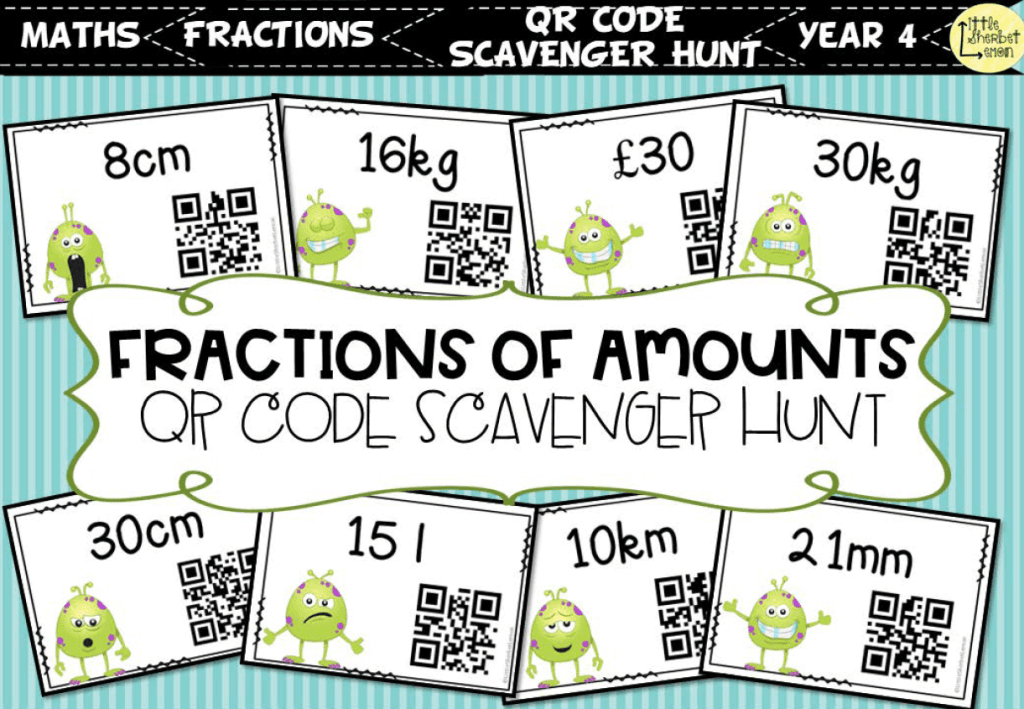
Author: Little Sherbet Lemon
Make learning about fractions fun and engaging by using QR codes. This PDF features a 24-question scavenger hunt linked to fractions of amounts using QR codes. It’s great for revision of fractions of amounts in Year 4 and 5.
The ‘code’ has the fractions of amounts question so the student can scan the code, record the question (eg 6/7 of 42g) and answer to the question, and look for that answer.
Once they have the card with that answer they then scan that ‘code’ and continue with the same steps until they find all of the answers.
Equivalent fractions – half, tenths and hundredths worksheet
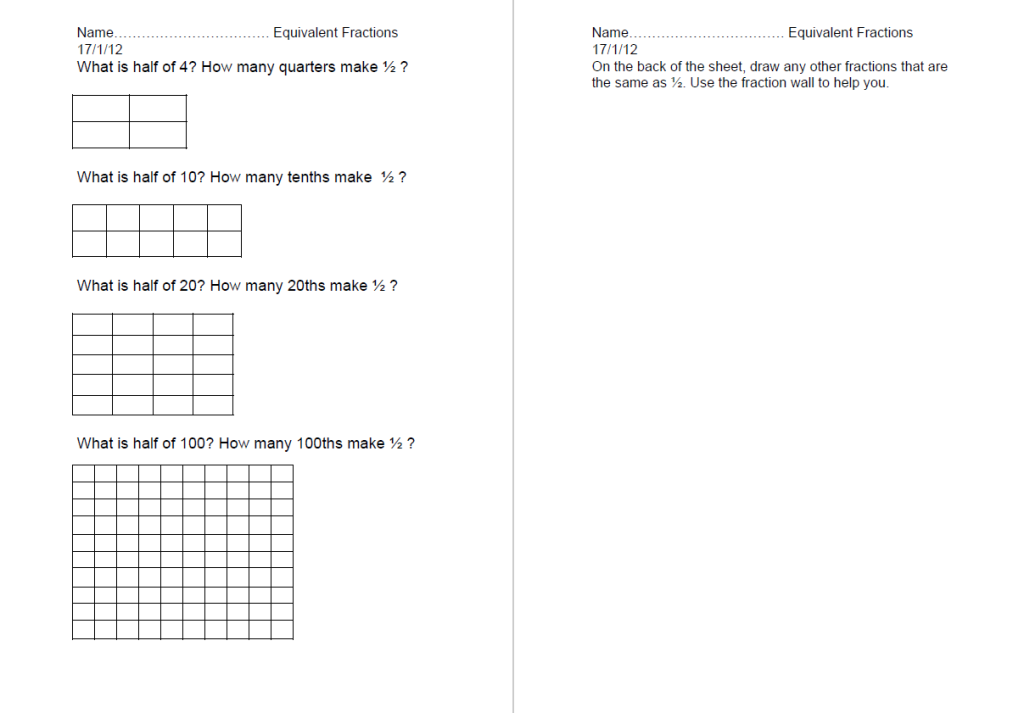
Author: Roberta Cresswell
This worksheet shows a grid divided into 4, 10, 20 and 100, to find the equivalent of half with quarters, tenths, twentieths and hundredths.
It’s ideal for Year 4 as a precursor to looking at decimals, tenth and hundredths, as well as to correct some misconceptions with lower-ability Year 6 children.
Equivalent fractions – practical exploration
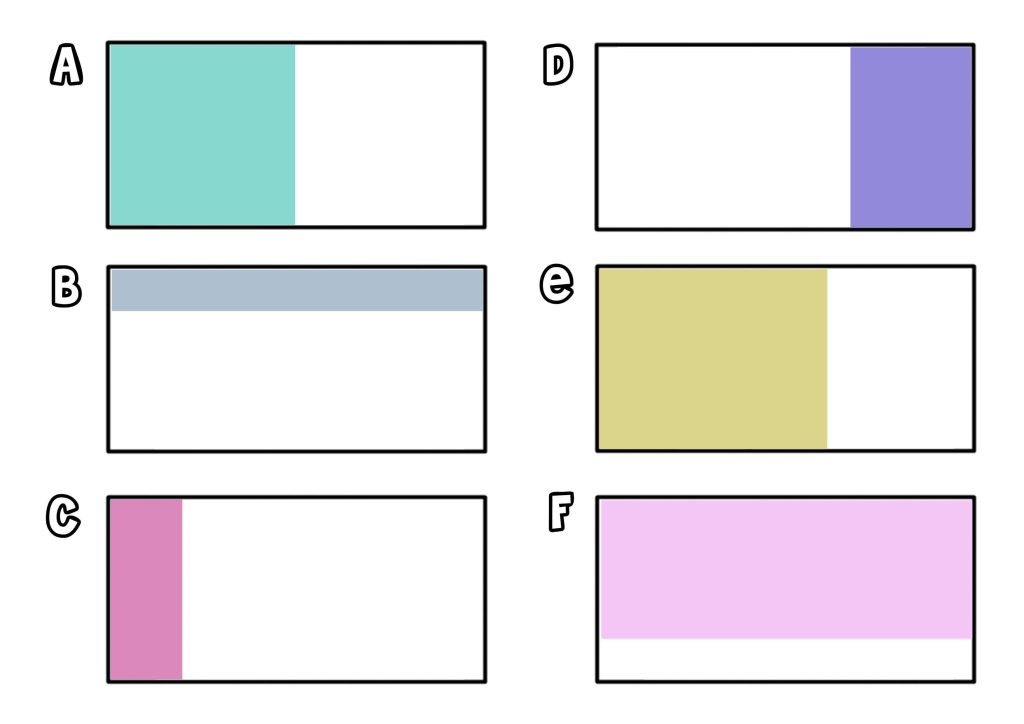
Author: Nyima Drayang
These are a set of rectangular ‘overlays’ – to be printed onto acetate (pupils get a pack containing one of each overlay).
They can use the overlays to divide the shapes (Questions) into different fractions and explore how equivalent fractions work.
It is a really practical kinaesthetic activity which encourages pupils to discover the mathematics themselves rather than learning ‘rules’ to make equivalent fractions.
Click here to download this resource.
Equivalent fractions, decimals and percentages
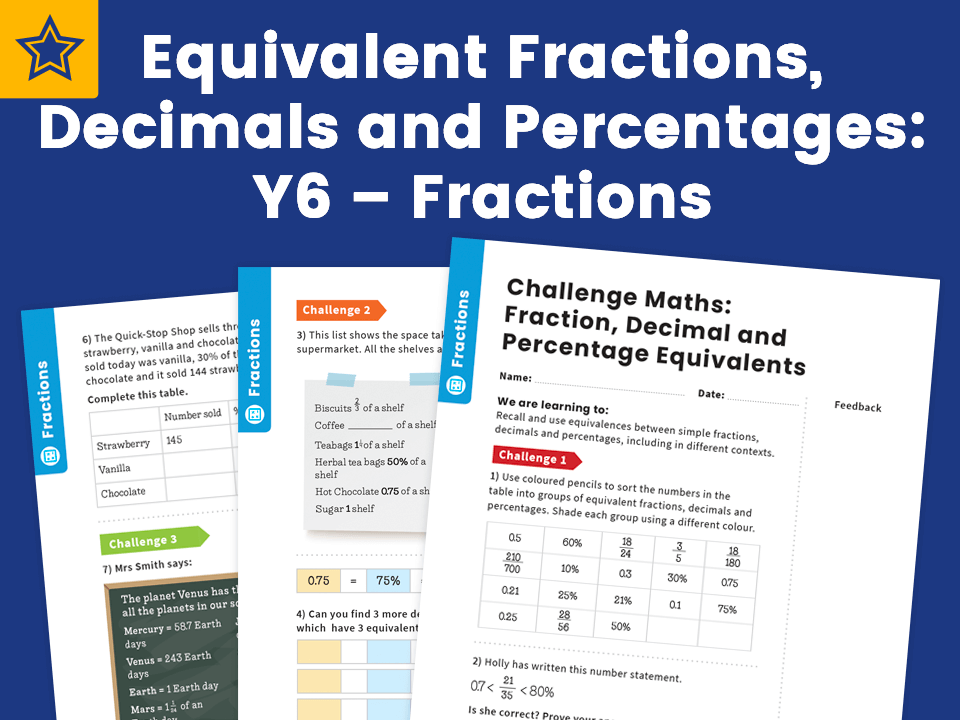
Author: Plazoom
Give your Year 6s an extra challenge with these fraction, decimal and percentage equivalents worksheets.
There are three sections, all with answers, that test pupils’ ability to recall and use equivalences between simple fractions, decimals and percentages, including in different contexts.
Ordering fractions and decimals
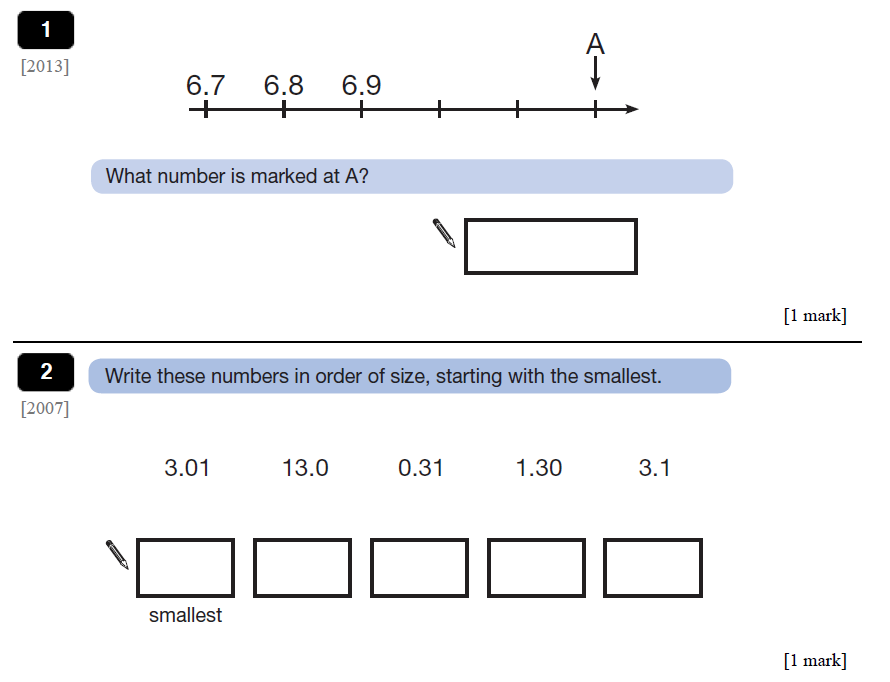
Author: David Morse
These topic-focused SATs questions at the end of a unit will help to test and extend students’ understanding as well as helping them to prepare for SATs next year. These questions have fully-worked solutions which can be displayed on a whiteboard making feedback with students more efficient.
This particular compilation is from the fractions, decimals and percentage strand and contains questions which require students to think about the relative sizes of fractions and decimals, and the order that they would be written on a number line.
This compilation is designed to be printed as an A4 or A5 booklet which is in the style of the actual SATs papers and is convenient for use in class or as homework. It can even be given to individual students if a parent is asking for ‘some more work’!
Ordering fractions and decimals worksheet
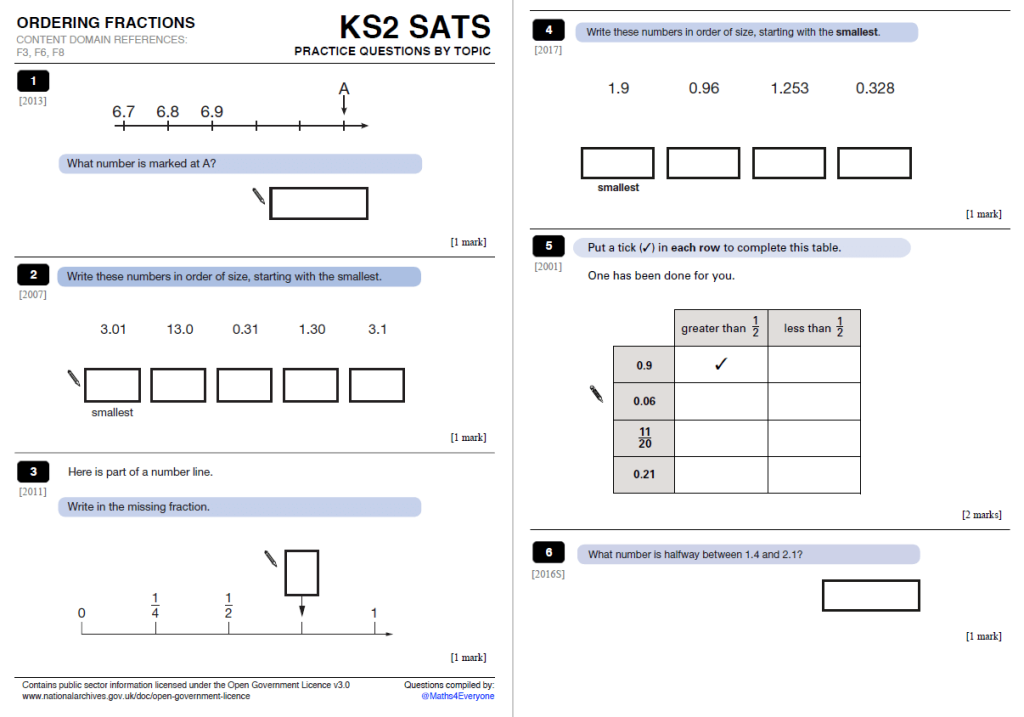
Author: David Morse
These are also topic-focused SATs questions to help students prepare for exams.
Fractions to decimals treasure hunt for KS2 and KS3
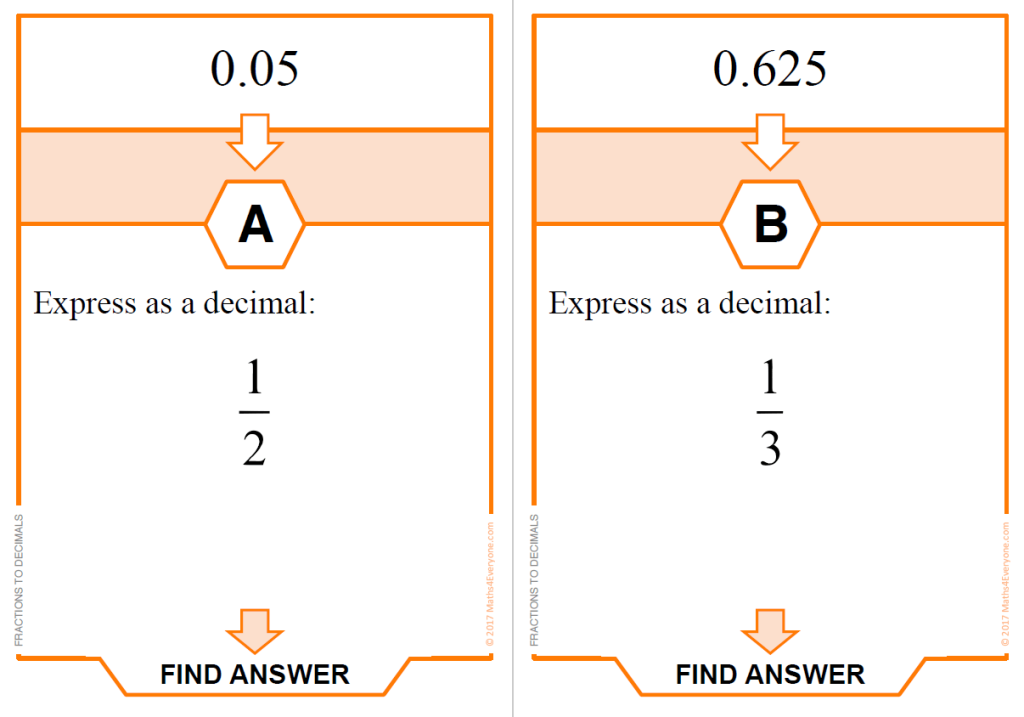
Author: David Morse
This is a quick activity, ideal as a starter, that helps verify students knowledge of common fraction-decimal equivalences, and come in two sizes suitable for a whole-class activity, or group individual work.
SATs preparation
Equivalent fractions SATs-style questions
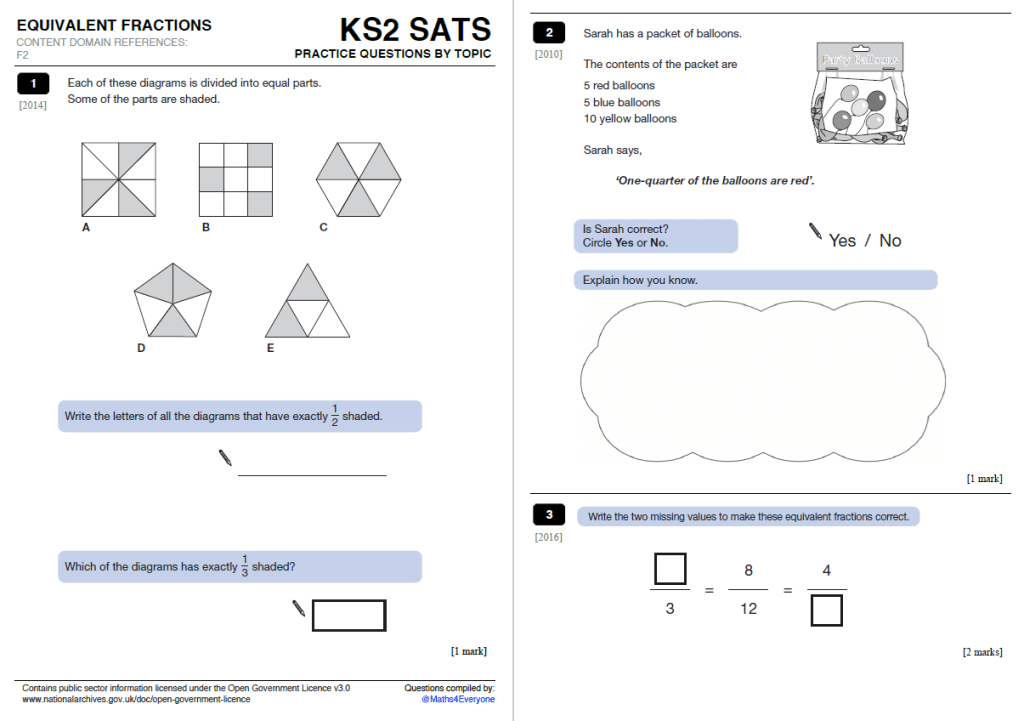
Author: David Morse
These topic-focused SATs questions have fully-worked solutions which can be displayed on a whiteboard, making feedback with students more efficient.
Fractions arithmetic SATs-style questions
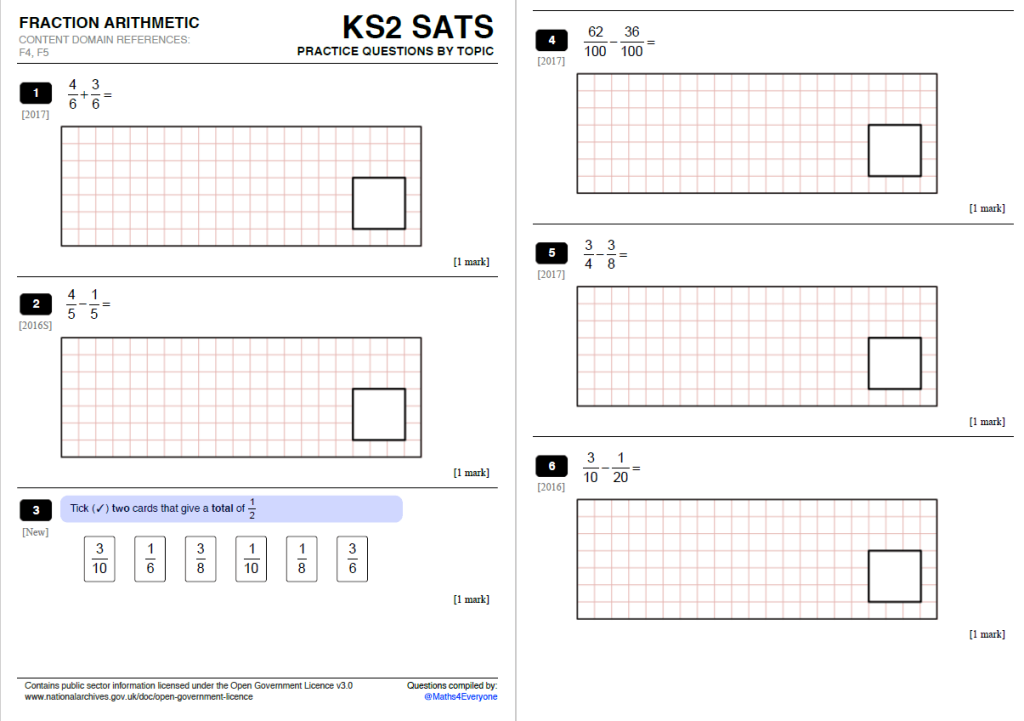
Author: David Morse
More topic-focused SATs questions with fully-worked solutions which can be displayed on a whiteboard.
Understanding fractions SATs-style questions
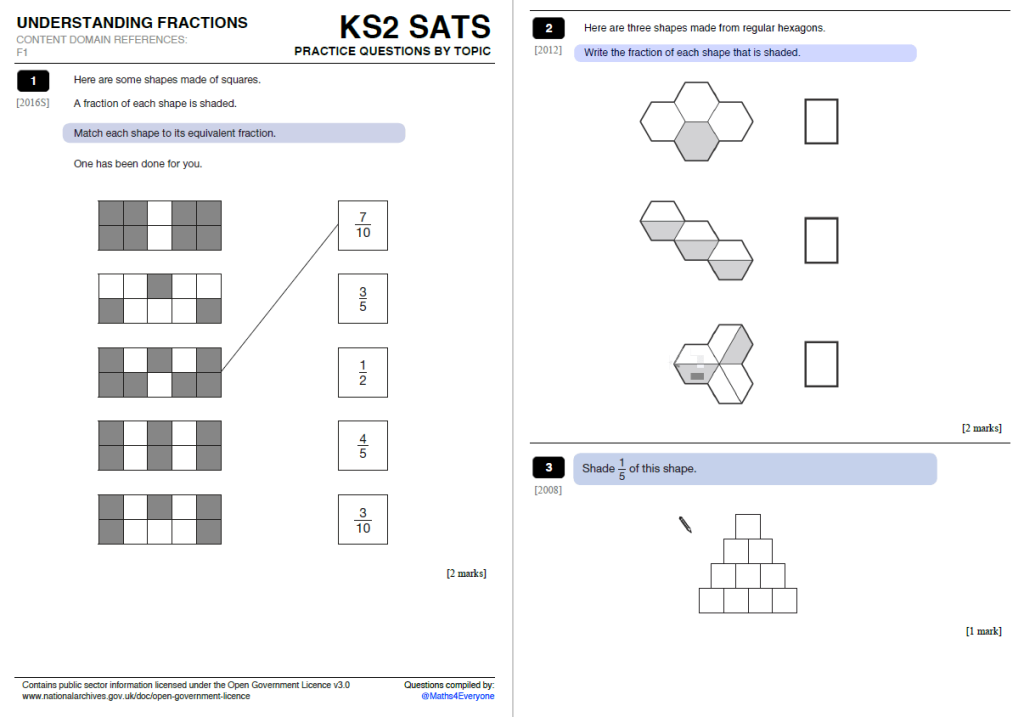
Author: David Morse
This particular compilation is from the Fractions, Decimals and Percentage strand and contains questions which require students to shade a given fraction of a shape or identify how much of a shape has been shaded.
It is designed to be printed as an A4 or A5 booklet which is in the style of the actual SATs papers and is convenient for use in class or as homework, and questions increase in difficulty as students work through them.
LOOP CARDS
These reusable cards are excellent for one-to-one tutorials and interventions. They are also great when working with small groups or as a starter/plenary for a whole class.
Fractions of an amount loop cards
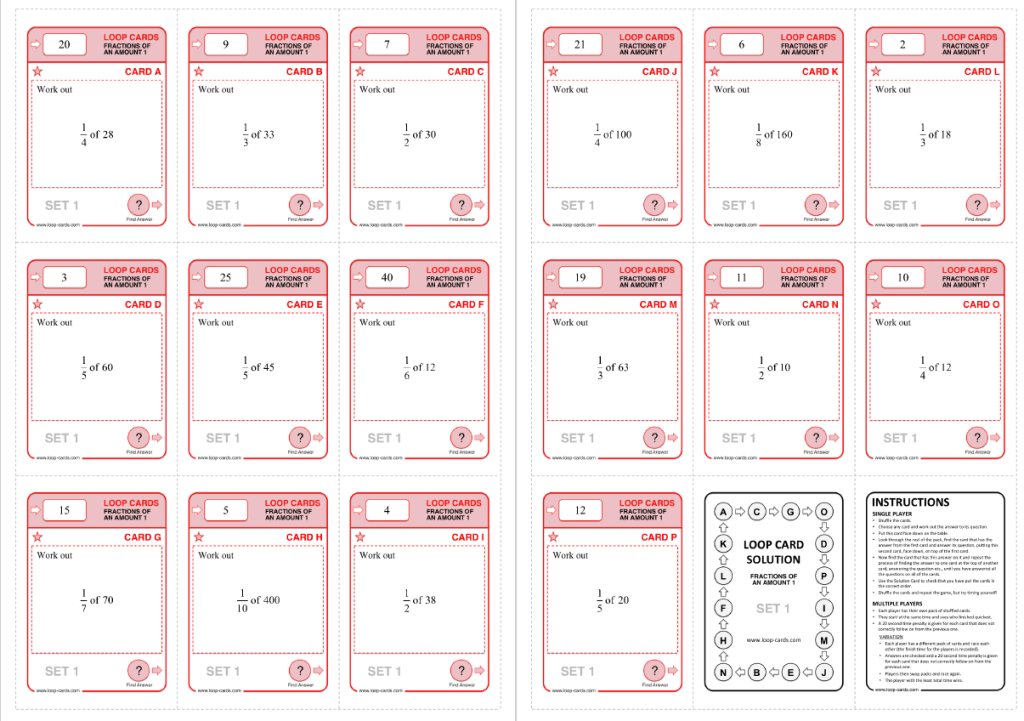
Author: David Morse
This set allows students to practise working out fractions of quantities when the numerator of the fraction is ‘1’.
Note that the questions have been carefully selected so that they provide good coverage of this topic and so that the opportunities for students to guess answers are minimised.
In this download there are four sets of similar cards and a student chooses one of the sets and sorts them into order by answering the questions. Then they try to do it faster using a different set, which has the same questions, but a different sort order.
Cut out card size is approx 65 x 90 mm.
Adding unit fractions 1 loop cards
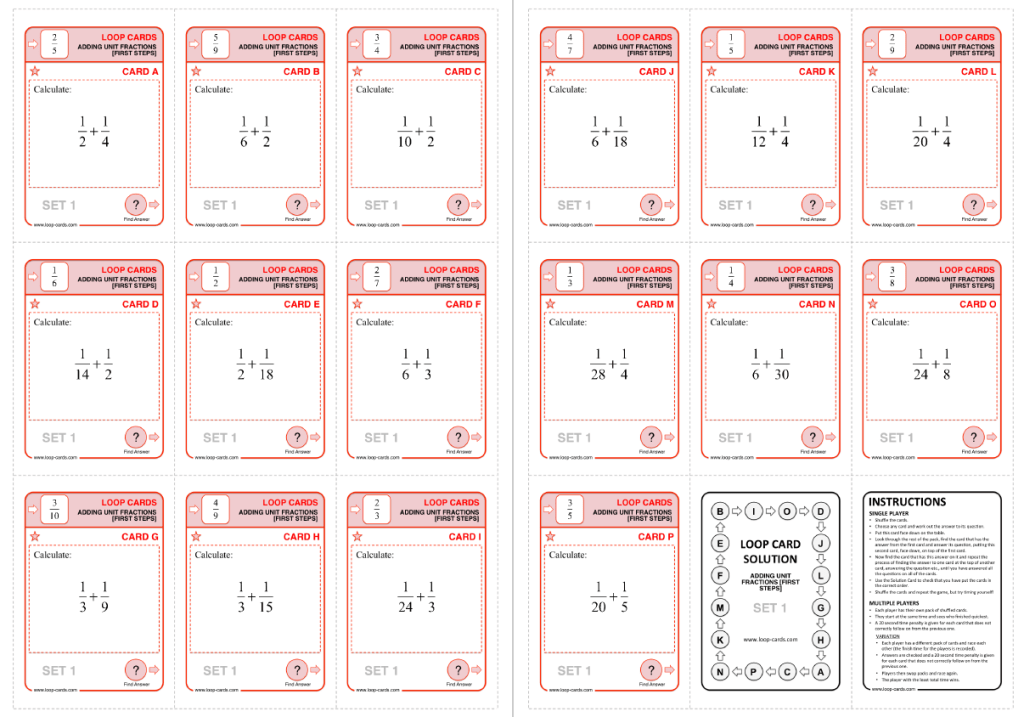
Author: David Morse
This set allows students to practise adding unit fractions in which one of the denominators is a multiple of the other.
My favourite use of loop cards is for two students to have different versions of the cards and race each other. They then check their answers, shuffle, swap packs and race again (quickest overall time wins). More instructions are included in the download.
Adding unit fractions 2 loop cards
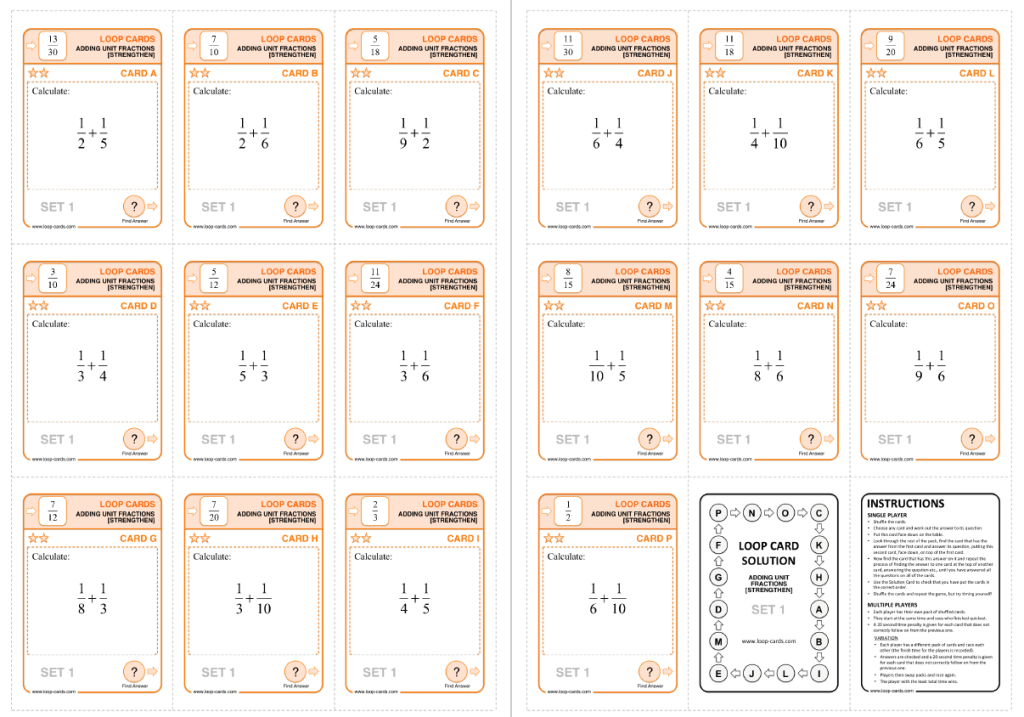
Author: David Morse
This set allows students to practise adding unit fractions in which one of the denominators might not be a multiple of the other.
Fractions to decimals loop cards for KS2 and KS3 Maths
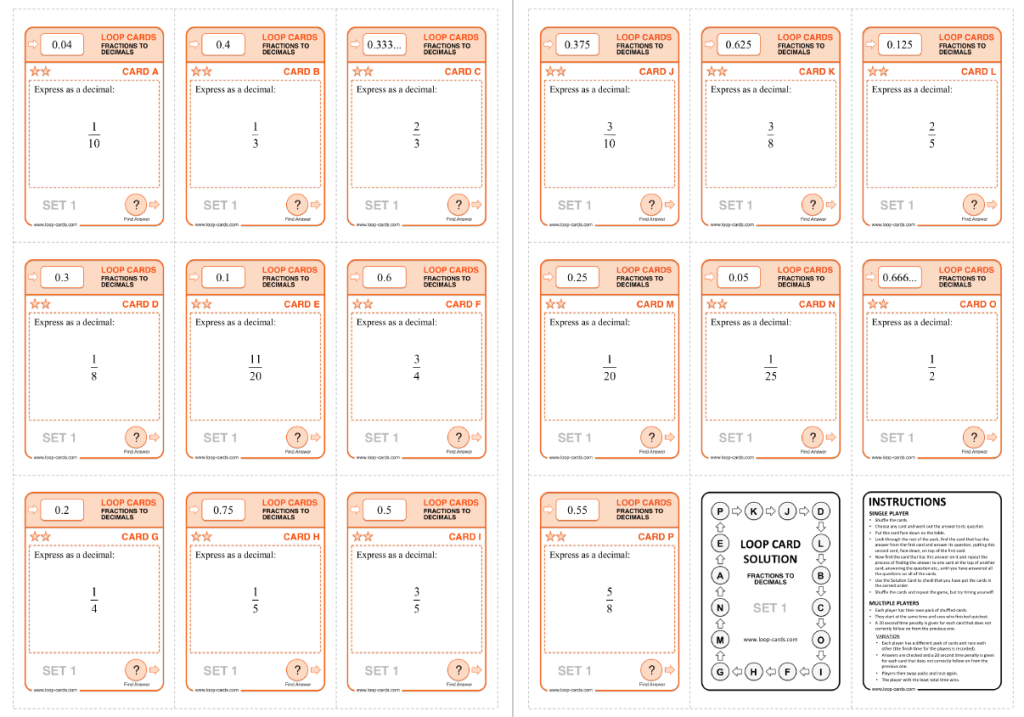
Author: David Morse
This set allows students to practise converting fractions into decimals. The fractions within these sets of cards are ‘common’ fractions and so it is acceptable (in fact, desirable) that they learn the conversions rather than actually work them out each time!
Decimals to fractions loop cards for KS2 and KS3
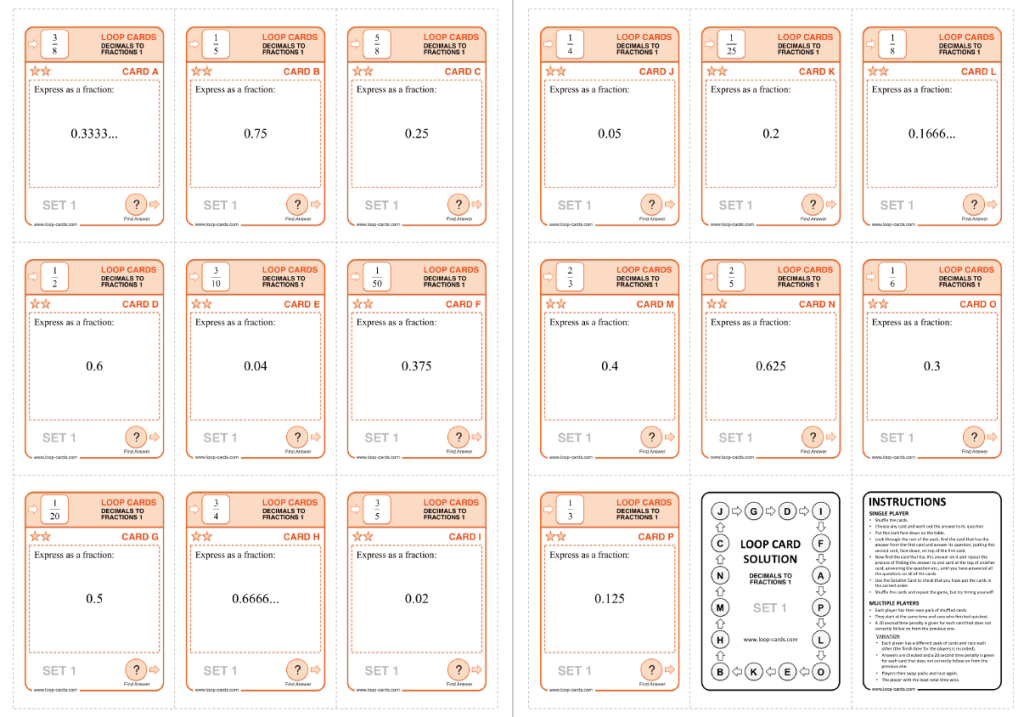
Author: David Morse
This set goes the other way, allowing students to practise converting decimals into fractions.





